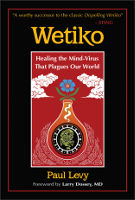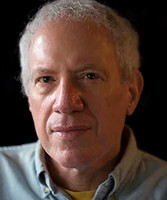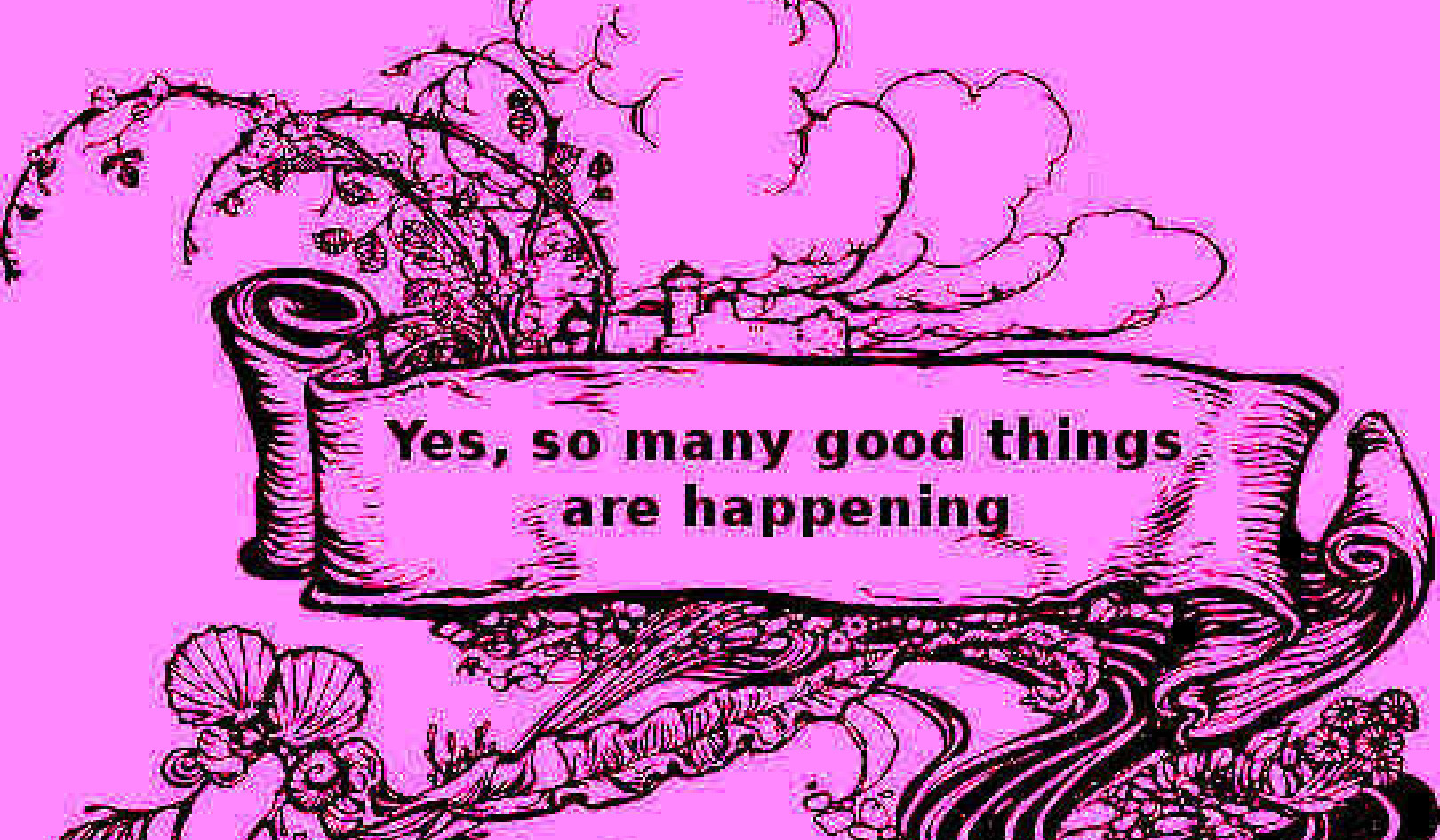
Image by Pete Linforth
Narrated by AI.
Watch the video version on InnerSelf or at YouTube.
(Please subscribe to InnerSelf's YouTube channel.)
Some of us understandably feel despair and pessimism because of the dark agenda that is undeniably being implemented not just behind the scenes, but on the main stage of the world for all who have eyes to see. There is very convincing real-world evidence to justify the pessimistic point of view of their narrative bias.
Others of us can hold out the possibility that a deeper good might be emerging out of the collective nightmare that we are living through. This is a viewpoint that seems naïve and ridiculous from the perspective of the people whose narrative bias is pessimistic.
If someone has fallen prey to pessimism, thinking that they are helpless to change the trajectory of our species’ suicidal behavior, they will see the world through a lens that draws evidence to confirm their pessimistic viewpoint. This results in them being even more convinced of the validity of their viewpoint and the objective nature of what they are seeing in an infinitely regressing, self-generating samsaric cycle that is of the nature of a self-fulfilling prophecy.
They wouldn’t be so pessimistic if our world wasn’t manifesting so darkly, and our world wouldn’t be manifesting so darkly if they weren’t so pessimistic. It is important to note that wetiko both inspires and feeds off of an overly pessimistic attitude.
The question naturally arises: In their pessimistic viewpoint, are they just being sober-minded “realists,” having a justified response to the reality of our situation? Or have they become entranced by the creative genius of their own mind to call forth reality in an image confirming their pessimistic viewpoint?
It should get our attention that there is something flawed in our logic if the accomplishment from winning a debate about the truth of our pessimism is that we are screwed. It is noteworthy that if someone becomes entrenched in their pessimistic point of view, they have become unwittingly complicit in creating their own worst nightmare.
On the other hand...
I’ve noticed that when I point out the darker agenda to people who are identified with an overly one-sided, spiritual, and optimistic point of view, they get upset. They don’t want to put their attention on the shadowy goings-on in our world. This might be for fear of thinking they’d be feeding the darkness by focusing their attention on it. Or perhaps they might sense that they’d get overly stressed out, anxious, and depressed if they took in the darkness, in which case they couldn’t be of help to anyone.
By holding onto an overly optimistic, light-filled viewpoint, however, while marginalizing the darker, more frightening point of view, they are avoiding relationship with their own inner darkness. They thereby unwittingly make it more probable that the very darker reality that they are denying will actually manifest. Similar to over-pessimism, wetiko simultaneously inspires and feeds off of an overly optimistic attitude.
And yet these two polar opposite points of view—though seemingly contradictory and mutually exclusive—can both be seen to be potentially valid depending on the reference point through which they’re viewed. The pessimistic viewpoint sees us creating hell on Earth, and the optimistic point of view imagines that the pandemic will bring in a new, more grace-filled world. All of the possible universes exist in a state of quantum superposition, like multiple transparencies overlaid on each other, and which potential reality actually manifests depends upon our creative response (or lack thereof).
Seeing Only An Aspect of the Truth
There is a psychological phenomenon that happens when we see an aspect of the truth. This is that oftentimes we fall prey to imagining that what we are seeing is the whole truth, instead of realizing that we are only seeing one of its many multitextured facets.
Seeing a partial truth but being certain that we are in possession of the whole truth can actually serve to obscure us from seeing a more comprehensive truth. (This is a process that, once again, wetiko both inspires and feeds off of.) We ourselves then unknowingly become our own agents of obfuscation.
Many people, based on their narrative bias, are identified with one point of view, which is not only seen as true, but is conflated with THE TRUTH itself. This is often done to the exclusion of the contrary viewpoint, which is not only deemed to be false, but oftentimes seen as something dangerous and/or evil. One of the results of this is to divide and separate us among ourselves based on whichever particular reality tunnel (to use author Robert Anton Wilson’s phrase) we inhabit in the moment.
Divided Among Ourselves
People who are interpreting the world the way we see it validate the rightness of our point of view and are seen as allies. People who view things differently than us are typically seen as “others.” They are seen as having a deluded perspective and are deemed a threat to our version of reality, which creates a sense of judgment and separation from those who hold a different viewpoint.
Becoming divided among ourselves is part of the psychological effect of the wetiko virus that we are unwittingly colluding with through our fixed views. When we become divided and polarized, we are more easily manipulated and controlled (divide and conquer) by outside forces.
If we become stuck in our viewpoint we are actually enabling the virus to propagate itself at our expense. This is to say that the psychological aspect of the virus depends on our cognitive prejudices to keep itself in business, so to speak.
Finding Truth in the Counter-narrative
Just like a dream compensates a one-sidedness in the dreamer, oftentimes the counter-narrative to our own may contain some facet of truth, some important piece of the bigger picture. This, if recognized, can enhance and flesh out our perspective.
The exception, of course, is when someone’s narrative is simply deluded and out of touch with reality, a result of the pervasive brainwashing propaganda that seems to be everywhere in our world today. If we are able to find even the smallest grain of truth in the opposing viewpoint, however, it can help us to dispel our sense of separation from the other person who seems to be holding a contrary perspective to our own, which increases our compassion.
In our world today it is as if people are inhabiting two parallel universes, with no intersection of viewpoints between the two. It behooves us to access a metaperspective such that we can see the differing viewpoints of both parallel universes simultaneously, without solely identifying with—and hence, being caught by—one or the other.
Consciously holding the tension of the opposites within our own awareness without splitting off and identifying with either of the opposites (either optimistic or pessimistic) is an intrinsic superhero power that we all possess.
Seeing the Big Picture
Humanity has been hobbled by our narrative biases. Instead of locking down on one narrative, the ability to have a comprehensive, omniperspectival view of the world—where instead of seeing only a partial view of what might be happening, we are more able to see the big picture—is a critically important evolutionary capacity that we are each being called to develop.
If, due to our narrative bias, we identify with one of the opposites as being true and the other as being false, however, we dissociate within ourselves. This disconnects us from our wholeness and forecloses on our ability to access genuine compassion. Abnegating our ability to be of benefit to a world so greatly in need of our help, we then become unwittingly complicit in participating in the unfolding world catastrophe, which would be truly tragic.
We can be of maximum benefit to both ourselves and the world at large when we are intimately connected with our intrinsic wholeness, whose natural perspective is not fixed in any particular dogmatic viewpoint or fixed narrative but sees things from as many points of view as we are able to imagine.
Copyright 2021. All Rights Reserved.
Printed with permission.
Published by Inner Traditions Intl.
Article Source
Wetiko
Wetiko: Healing the Mind-Virus That Plagues Our World
by Paul Levy
 In its Native American meaning, wetiko is an evil cannibalistic spirit that can take over people’s minds, leading to selfshness, insatiable greed, and consumption as an end in itself, destructively turning our intrinsic creative genius against our own humanity.
In its Native American meaning, wetiko is an evil cannibalistic spirit that can take over people’s minds, leading to selfshness, insatiable greed, and consumption as an end in itself, destructively turning our intrinsic creative genius against our own humanity.
Revealing the presence of wetiko in our modern world behind every form of destruction our species is carrying out, both individual and collective, Paul Levy shows how this mind-virus is so embedded in our psyches that it is almost undetectable--and it is our blindness to it that gives wetiko its power.
Yet, as the author reveals in striking detail, by recognizing this highly contagious mind parasite, by seeing wetiko, we can break free from its hold and realize the vast creative powers of the human mind.
For more info and/or to order this book, click here. Also available as a Kindle edition.
About the Author
 Paul Levy is a pioneer in the field of spiritual emergence and a Tibetan Buddhist practitioner for more than 35 years. He has intimately studied with some of the greatest spiritual masters of Tibet and Burma. He was the coordinator of the Portland chapter of the PadmaSambhava Buddhist Center for over twenty years and is the founder of the Awakening in the Dream Community in Portland, Oregon.
Paul Levy is a pioneer in the field of spiritual emergence and a Tibetan Buddhist practitioner for more than 35 years. He has intimately studied with some of the greatest spiritual masters of Tibet and Burma. He was the coordinator of the Portland chapter of the PadmaSambhava Buddhist Center for over twenty years and is the founder of the Awakening in the Dream Community in Portland, Oregon.
He is the author of The Madness of George Bush: A Reflection of Our Collective Psychosis (2006), Dispelling Wetiko: Breaking the Curse of Evil (2013), Awakened by Darkness: When Evil Becomes Your Father (2015) and The Quantum Revelation: A Radical Synthesis of Science and Spirituality (2018).
Visit his website at AwakeningheDream.com/




























